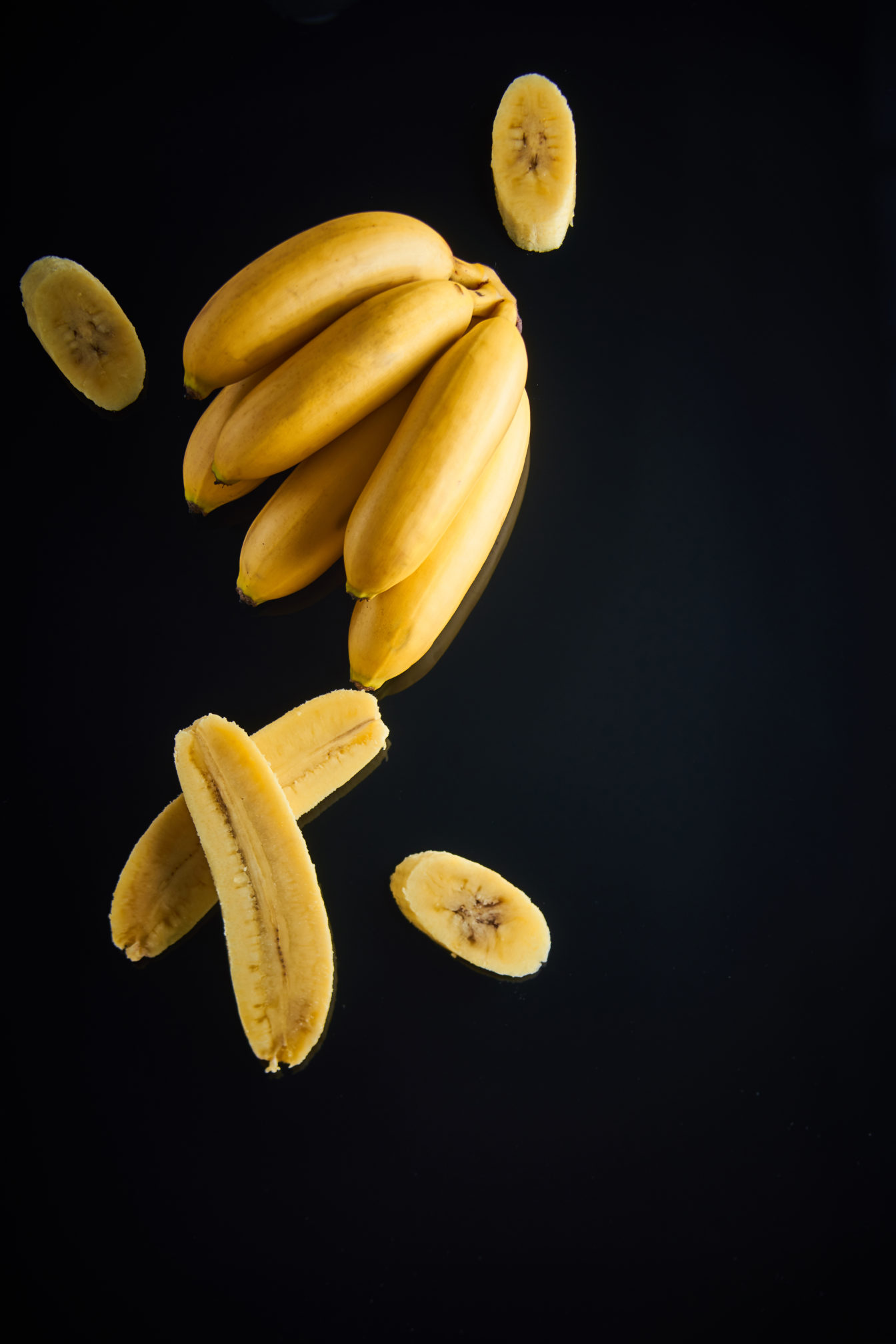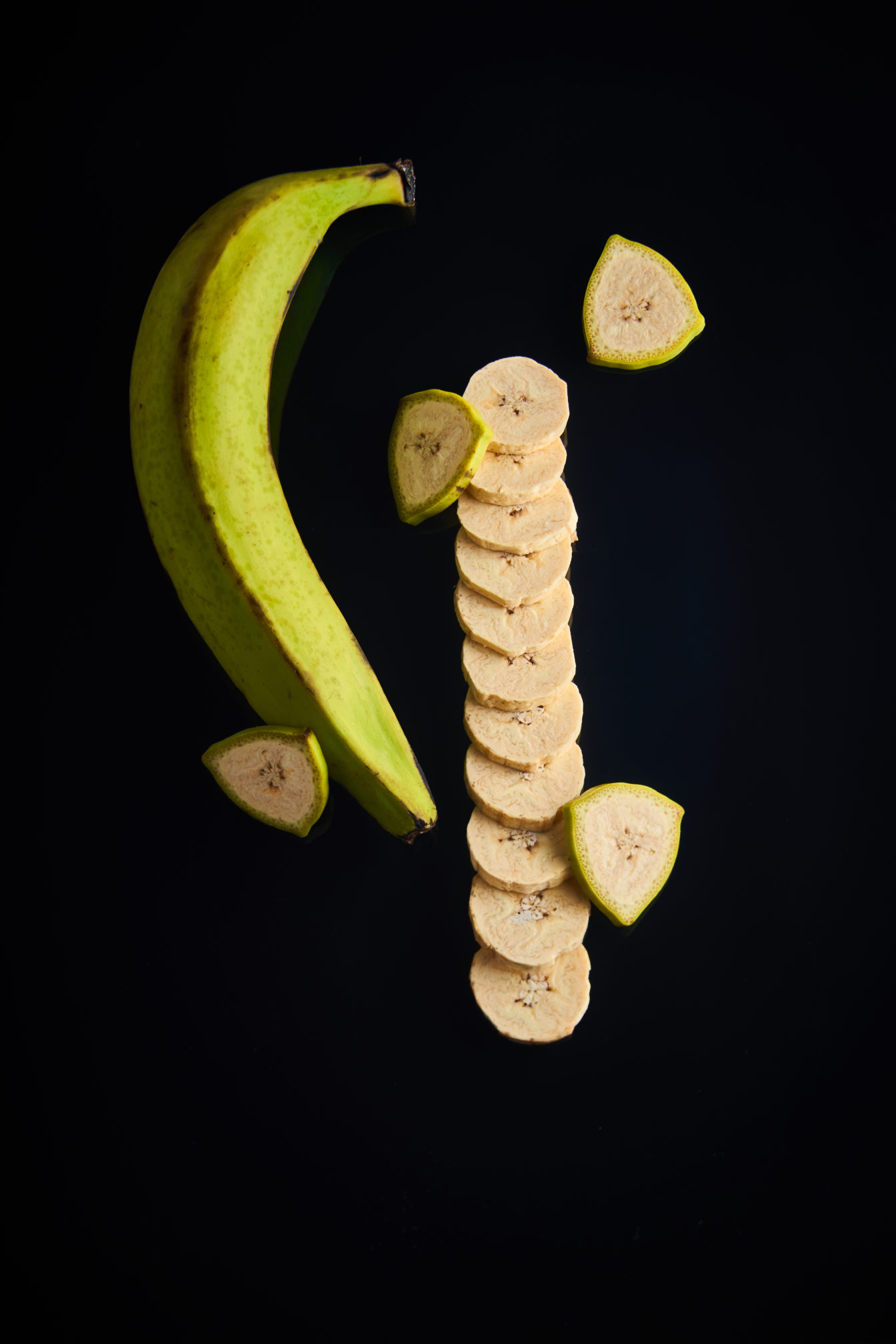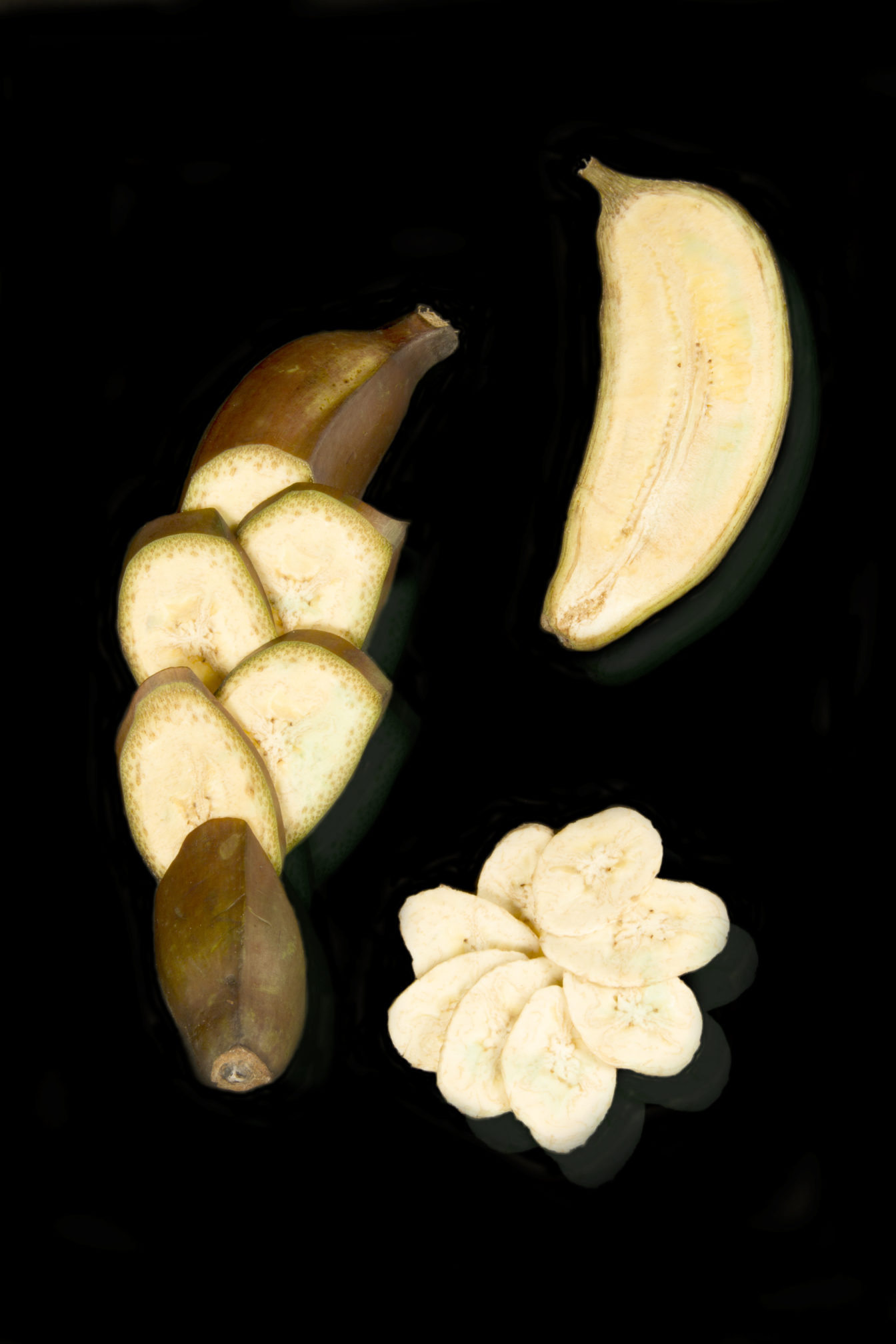Banana
Soft flesh
The frécinette banana does not measure more than 10 cm, hence its nickname “dwarf banana”. However, with its meltingly soft and very sweet flesh reminiscent of figs, it concentrates all the flavours found in a normal banana despite its small size. Ideal eaten plain, it can also be enjoyed in fruit salads, flambéed, in fritters, pies or cakes, or in the form of ice cream, smoothies or milkshakes.
A great source of energy, the banana is full of vitamins: vitamin A; B-group vitamins, including vitamin B6, which contributes to the production of neurotransmitters (chemical messengers) and red blood cells; vitamin C with its antioxidant properties; and vitamin E, which acts to prevent diseases such as Alzheimer’s and Parkinson’s. It is also rich in magnesium, potassium, iron and fibre.
Sweet flesh
The plantain banana differs from other banana varieties due to its size (25 to 45 cm long). Its flavour is mild and is very sweet when ripe; it is always eaten cooked.
When green, it is a vegetable with mealy flesh, similar to a potato. It can be enjoyed boiled, in the form of purées or patties, sautéed, in the form of chips or crisps, or served as an accompaniment to white meat or fish. When ripe, it is yellow and becomes fruit. It can then be eaten as a dessert, fried, flambéed or in fritters.
The plantain banana is rich in vitamin B6, which has multiple benefits: it contributes to the production of neurotransmitters (chemical messengers), the production of red blood cells, and proper immune system function. It also contains manganese, which helps fight cell ageing. Lastly, it is a source of magnesium, potassium and vitamin C and helps to relieve the symptoms of diarrhoea.
Fragrant and flavourful
The pink banana, which is not very common, comes from Mexico or the Ivory Coast. Its skin is pink ochre to mahogany in colour. Its white, very sweet flesh is more meaty and fragrant than that of the yellow banana. It has a subtle raspberry flavour. It can be eaten raw or cooked and is ideal in fruit salads or for cooking flambéed bananas, as it does not melt when cooked.
It contains many vitamins, including vitamin C with its multiple benefits (12 mg per 100 g of fruit, which is higher than that found in metropolitan fruit) and vitamin B6, necessary for proper immune system function (0.5 mg per 100 g, or a quarter of the recommended daily intake). It is also very rich in magnesium, which has recognised beneficial effects in preventing cardiovascular disease and diabetes.


